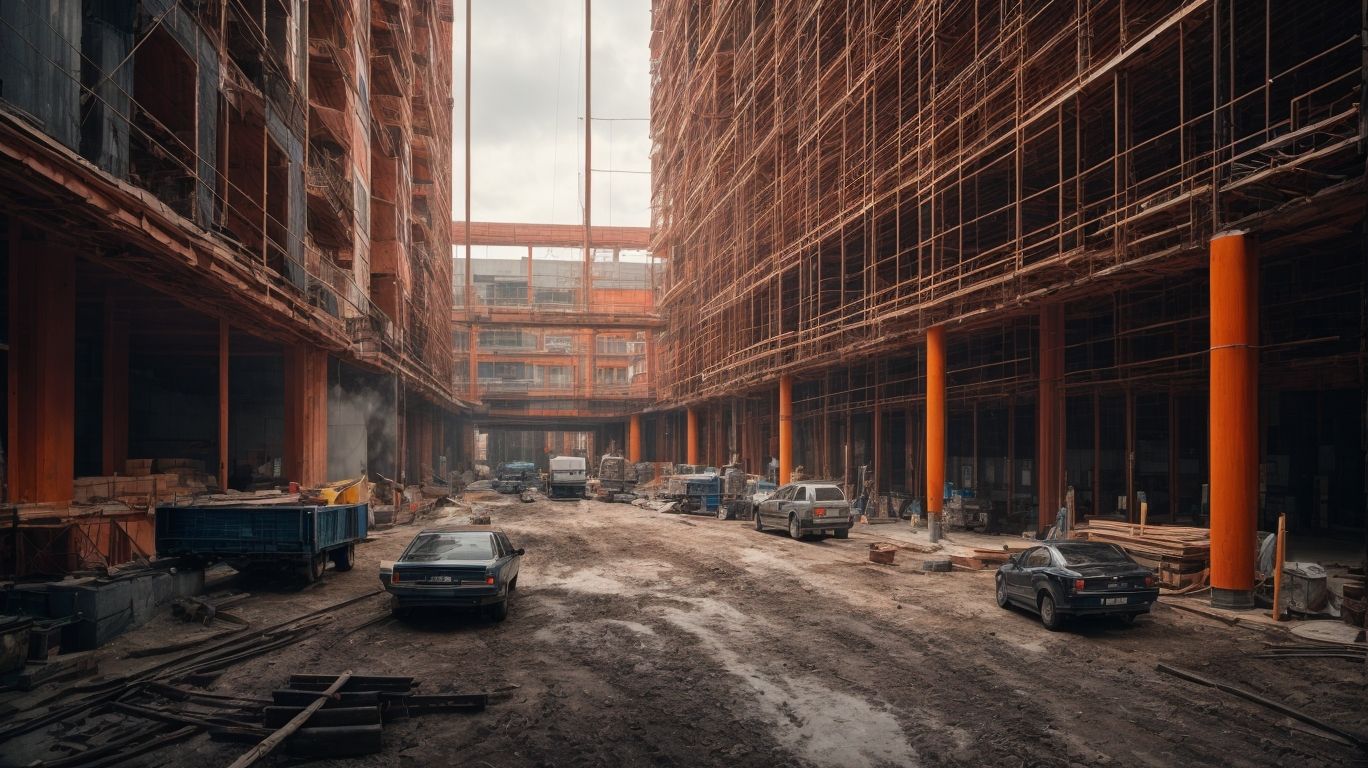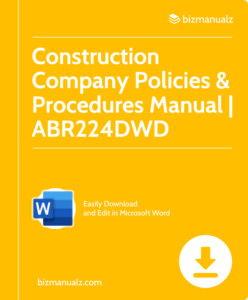What Are Core Construction Processes?

Confused about the various construction processes involved in building your dream home? Don’t worry, we understand the complexity of this industry and we’re here to help. In this article, we’ll explore the important elements of core construction processes and how they can impact your building project. Let’s dive in together. What Are Core Construction Processes?
What are Construction Processes?
Construction processes are a series of steps and activities that are involved in the creation of a building or structure. These processes include:
- Planning
- Design
- Procurement of materials
- Site preparation
- Construction
- Project completion
Each process is tailored to the specific project and can differ based on factors such as the building type, location, and project needs. The ultimate goal of these processes is to effectively and safely construct a structure that meets the required specifications and standards. To achieve this, efficient project management and coordination are crucial.
What are the Different Types of Construction Processes?
There are various types of construction processes that are utilized at different stages of a construction project. These processes can be classified into three main categories: pre-construction processes, construction processes, and post-construction processes.
- Pre-construction processes: These activities include project planning, site surveying, obtaining necessary permits, and designing the project.
- Construction processes: This phase involves the actual construction work, such as excavation, foundation laying, structural work, electrical and plumbing installations, and finishing work.
- Post-construction processes: These activities encompass final inspections, testing, commissioning, and handing over the completed project to the client.
Each type of construction process plays a vital role in the overall success of a project. Effective coordination and communication among all parties involved, including architects, engineers, contractors, and subcontractors, are crucial for smooth execution.
To enhance construction processes, companies can regularly evaluate and improve their processes, implement technology and automation for efficient workflow, and prioritize communication and collaboration among team members.
What are Core Construction Processes?
Core construction processes are the fundamental steps necessary for the construction of a building or structure. These processes play a critical role in ensuring the integrity, safety, and functionality of the final product. Some essential core construction processes include:
- Site preparation
- Foundation construction
- Framing
- Electrical and plumbing installations
- Insulation
- Drywall installation
- Finishing
Each stage requires meticulous planning, skilled labor, and adherence to building codes and regulations. By comprehending these core construction processes, individuals can gain a deeper understanding of the intricacies and precision involved in successfully completing a construction project.
What is the Importance of Core Construction Processes?
The significance of core construction processes cannot be overstated, as they are responsible for ensuring the structural integrity, durability, and overall quality of buildings and infrastructure. These processes encompass various tasks, including foundation construction, framing, electrical and plumbing installation, and finishing work.
Adhering to proper construction processes is essential in creating safe and resilient structures that meet regulatory standards and can withstand environmental factors. Additionally, these processes contribute to the efficiency and functionality of a building, making them crucial for achieving the intended purpose of a structure.
One notable historical example that highlights the importance of core construction processes is the construction of the Great Wall of China. Spanning over centuries, the wall stands as a testament to the meticulous and thorough construction processes utilized to create a massive defensive structure.
The careful selection of materials, precise engineering, and skilled labor all played a crucial role in the wall’s ability to withstand the test of time and protect China from invasions for centuries. This remarkable historical feat serves as a prime example of how core construction processes are essential in creating enduring and impactful structures.
How do Core Construction Processes Affect the Overall Construction Project?
Core construction processes play a vital role in determining the overall success of a construction project. These processes have a significant impact on various aspects, such as project timeline, budget, quality, and client satisfaction. Let’s take a look at the steps that demonstrate how core construction processes influence the overall construction project:
- Project Planning and Design: Proper planning and design are crucial in laying the groundwork for a successful project. This ensures efficient allocation of resources and minimizes the potential for issues to arise.
- Procurement and Supply Chain Management: Effective management of procurement and supply chain activities guarantees timely availability of materials and reduces the risk of cost overruns.
- Construction Execution and Management: Proper execution and management of construction activities ensure that project specifications, deadlines, and quality standards are met.
By following these steps, companies can improve their core construction processes, leading to better project outcomes and increased client satisfaction.
What are Some Examples of Core Construction Processes?

Construction Policy and Procedure Manual
Core construction processes are essential steps in any construction project, ensuring its success from start to finish. In this section, we will dive into some examples of these core construction processes and their vital roles in the overall construction process. From project planning and design to procurement and supply chain management, and finally to construction execution and management, each process plays a crucial role in the construction industry. Join us as we explore the intricacies of these fundamental processes.
1. Project Planning and Design
Project planning and design are crucial stages in the construction process, ensuring a well-organized and successful project. Here are the key steps involved in project planning and design:
- Gather project requirements and objectives.
- Conduct site analysis and feasibility studies.
- Create a project timeline and budget.
- Develop architectural and engineering plans.
- Obtain necessary permits and approvals.
- Collaborate with stakeholders and consultants.
- Identify and mitigate potential risks.
- Prepare detailed construction drawings and specifications.
- Finalize material and equipment selections.
- Establish project milestones and deliverables.
By following these steps, companies can lay a solid foundation for a construction project, ensuring efficient utilization of resources, timely completion, and meeting client expectations.
2. Procurement and Supply Chain Management
Procurement and supply chain management is a crucial aspect of construction processes. It involves acquiring materials, equipment, and services needed for a construction project. Here are the key steps in procurement and supply chain management:
- Identify project requirements and create a procurement plan.
- Source and select suppliers based on quality, cost, and delivery time.
- Negotiate contracts and terms with chosen suppliers.
- Monitor and manage supplier performance and ensure timely delivery of materials.
- Coordinate logistics and transportation to ensure materials reach the construction site.
- Track and manage inventory to avoid shortages or excesses.
- Manage payments and invoices to suppliers.
In 1979, the construction of the Sydney Opera House faced procurement challenges due to the unique design and need for specialized materials. The procurement team successfully managed the complex supply chain by sourcing suppliers from around the world and ensuring the timely delivery of materials. This allowed the construction project to be completed on schedule, making the Sydney Opera House an iconic landmark.
How Can Companies Improve their Core Construction Processes?
In today’s fast-paced business world, companies are constantly looking for ways to improve their core construction processes in order to stay ahead of the competition. In this section, we will discuss three key strategies that companies can implement to enhance their core construction processes.
These include regular evaluation and improvement, utilizing technology and automation, and prioritizing communication and collaboration. By incorporating these practices, companies can streamline their processes, increase efficiency, and ultimately achieve greater success. Let’s dive in and see how these strategies can make a significant impact on core construction processes.
1. Regular Evaluation and Improvement
Regular evaluation and improvement is essential for improving the efficiency and effectiveness of core construction processes. Here are the steps to implement this practice:
- Establish performance metrics: Define key indicators to measure the effectiveness of processes.
- Collect data: Regularly gather data related to project performance, cost, time, and quality.
- Analyze the data: Identify trends, patterns, and areas for improvement through data analysis.
- Identify bottlenecks: Identify any obstacles or inefficiencies that hinder project progress.
- Implement corrective measures: Take necessary steps to address bottlenecks and improve processes.
- Monitor progress: Continuously monitor the impact of implemented changes on project performance.
- Seek feedback: Encourage input from stakeholders to identify areas for improvement.
- Implement changes: Incorporate feedback and make changes accordingly to enhance processes.
- Repeat the cycle: Regularly repeat the evaluation and improvement process to continuously enhance core construction processes.
2. Utilizing Technology and Automation
Utilizing technology and automation in construction processes can greatly improve efficiency, accuracy, and productivity. Companies can take several steps to incorporate these advancements:
- Invest in construction management software to streamline project planning, scheduling, and resource allocation.
- Implement Building Information Modeling (BIM) to create 3D models for enhanced visualization, coordination, and clash detection.
- Utilize drones for site surveying, inspection, and progress monitoring.
- Adopt prefabrication and modular construction techniques to reduce on-site labor and increase productivity.
- Integrate Internet of Things (IoT) devices for real-time monitoring of equipment, safety, and environmental conditions.
- Use robotics and automation for repetitive tasks, such as bricklaying, concrete pouring, and material handling.
The use of technology and automation in construction has become increasingly prevalent in recent years. With advancements in computing power, data analytics, and robotics, the industry has embraced these tools to enhance productivity and safety. From advanced software solutions to innovative machinery, technology has revolutionized the way projects are planned, executed, and managed. Companies that effectively utilize technology and automation have a competitive edge and are better positioned for success in today’s market.
3. Prioritizing Communication and Collaboration
Prioritizing communication and collaboration is crucial in the construction industry to ensure seamless project execution. Here are steps to prioritize communication and collaboration:
- Establish clear channels of communication among project stakeholders.
- Regularly hold project meetings to discuss progress, challenges, and updates.
- Utilize project management software for real-time collaboration and document sharing.
- Encourage open and transparent communication to foster trust and accountability.
- Promote effective teamwork and encourage cross-functional collaboration.
In a similar vein, a construction company improved its communication and collaboration by implementing a digital communication platform. Communication gaps were minimized, and stakeholders were able to collaborate more efficiently, resulting in successful project completion within the set timeline and budget.
Core Construction Processes
At different phases of a construction project, different kinds of construction processes are applied. Pre-construction, construction, and post-construction processes are the three primary categories into which these processes can be divided. Every kind of building procedure is essential to a project’s overall success.
For a project to be completed successfully, architects, engineers, contractors, and subcontractors must all effectively coordinate and communicate with one another. Companies can use technology and automation to streamline workflow, prioritize teamwork and communication, and routinely assess and improve their processes to improve construction processes.
Frequently Asked Questions

What are Core Construction Processes?
The core construction processes are essential steps and methods used in the construction industry to complete a project successfully. These processes range from planning and design to actual construction and project management.
What are the different types of core construction processes?
Some common types of core construction processes include pre-construction planning, site preparation, foundation work, framing, roofing, electrical and plumbing, interior and exterior finishes, and final inspection.
Why are core construction processes important?
Core construction processes are important because they ensure that a construction project is completed efficiently, safely, and on time. These processes also help to maintain quality standards and prevent costly mistakes or delays.
How do core construction processes impact the overall success of a construction project?
Core construction processes greatly impact the overall success of a construction project. By following these processes, construction companies can minimize risks, maximize efficiency, and deliver high-quality results to their clients.
Who is responsible for overseeing core construction processes?
The responsibility for overseeing core construction processes typically falls on the project manager or construction superintendent. They are responsible for coordinating and managing all aspects of the construction project, including the core processes.
Are there any industry standards or regulations for core construction processes?
Yes, there are industry standards and regulations for core construction processes. These standards can vary by location, but they typically include building codes, safety regulations, and quality standards that construction companies must adhere to for each project.

















Leave a Reply